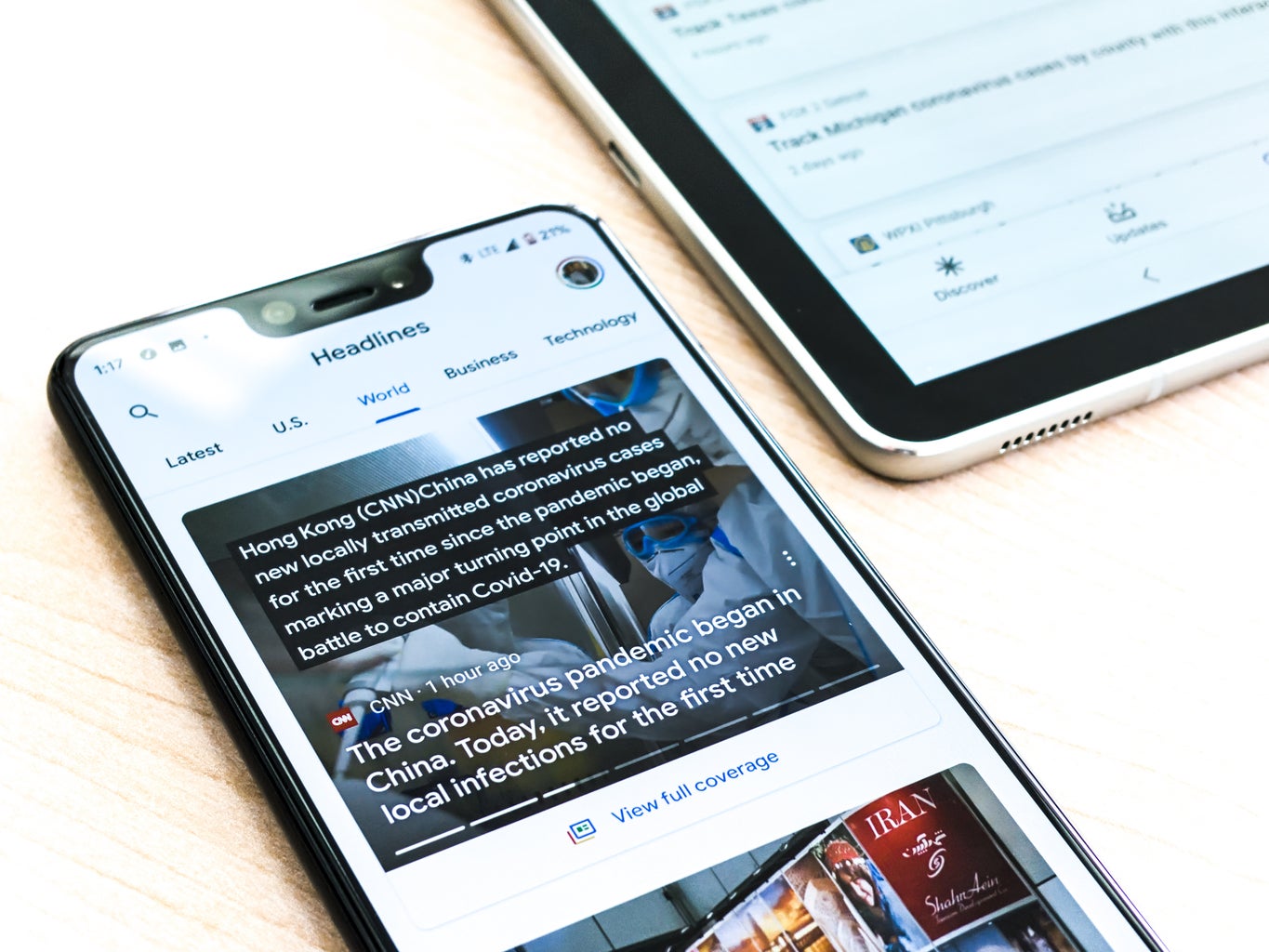“Be informed!”
“Stay educated about the world around you.”
“You didn’t watch the news?”
Shouts and murmurs of journalistic ethos echo in our ears constantly. To be an upstanding citizen is to be an informed citizen, and to achieve this we must exercise our First Amendment right, freedom of the press. In the U.S., we are fortunate enough to have (for the most part) complete freedom in the stories printed in our morning newspapers, and when there is harrowing footage, it can be broadcasted on live television or Twitter, without reprisal from the government.
Still, this constitutional right has consequences: the news is usually not a very positive experience. When you go to your favorite news station or get a notification of breaking news, simultaneous anxiety forms a pit in your stomach. In 2020, a survey conducted by the American Psychological Association found that: “More than half of Americans say the news causes them stress, and many report feeling anxiety, fatigue, or sleep loss as a result…”
Even being a journalism major, I still have a love/hate relationship with the news. I recognize how important it is to consume the news, and while I don’t always enjoy opening the New York Times to a horrible tragedy or global crisis, I know that I will continue to consume news media daily for the rest of my life. I get the New Yorker magazine delivered weekly to my mailbox at college, and when there is a break in my day, I find myself on news apps. But is this truly a healthy habit?
I believe the answer corresponds with most things: balance. We all are very busy, with lives that are probably giving us more than enough stress than we know what to do with. We don’t need the news giving us a burden of worry on top of this. Thankfully, there are ways to lessen the inevitable anxiety of the news and bring the joys of journalism back to the forefront.
To begin, the news is divided up into two overarching categories: hard news and soft news. Hard news is more political; focused on societal impacts. These are the news briefs of different events, and big headlines of tragedies, deaths, global issues, etc. Soft news is less political; focused on individual impacts. These would be topics of arts and culture, Op-ed sections, and news about prominent figures.
When consuming news, critically think about balancing these two categories. The second you open a news website, the front page will most likely be filled with hard news. If the day has been stressful, or if it is 8 a.m. and you have an exam in an hour, there is no need to be reading articles that are going to stress you out. Instead, choose to read an arts column, or browse celebrity headlines. These articles still give you a scope of the current state of today in a much more digestible format.
If hard news topics are the only ones on your news agenda, hone in on how you can control the information you are about to receive. Go into the article with a mindset of tranquility. There are always going to be extremely devastating things going on around us, and by reframing your mindset to be that of obtaining information, and not to anxiously spiral, you may find reading that stomach-churning article bearable.
Know what you are about to consume, and for that reason, turn off news alerts. Timing is everything. There is nothing worse than enjoying lunch with a friend, and suddenly, your phone pings with a horrible headline, ruining your appetite. You may be slightly behind on major events, but in order to protect your peace, you must allow yourself the autonomy to choose when you are consuming the news.
When reading about ongoing news stories such as the conflict between Israel and Palestine, or the war between Russia and Ukraine, look beyond the news for ways that you can take action. Donating to an organization, or signing an important petition, may ease the existential dread of being helpless to such horrific issues. Contrastingly, do not read ‘one-off’ stories. I’m talking about those disturbing novelty headlines of someone being killed in a freak accident or coming down with a rare illness after visiting your favorite vacation spot. Stories like these may be beneficial for individual awareness, but they are not vital to your news feed, and increase overall stress.
At the end of the day, listen carefully to your emotions and the state of your mental health. It’s okay to take a break from the news. And when the time is right, utilize the freedom of the press.
It is for the people, after all.
Can’t get enough of HC UMass Amherst? Be sure to follow us on Instagram, listen to us on Spotify, like us on Facebook, and read our latest Tweets!





